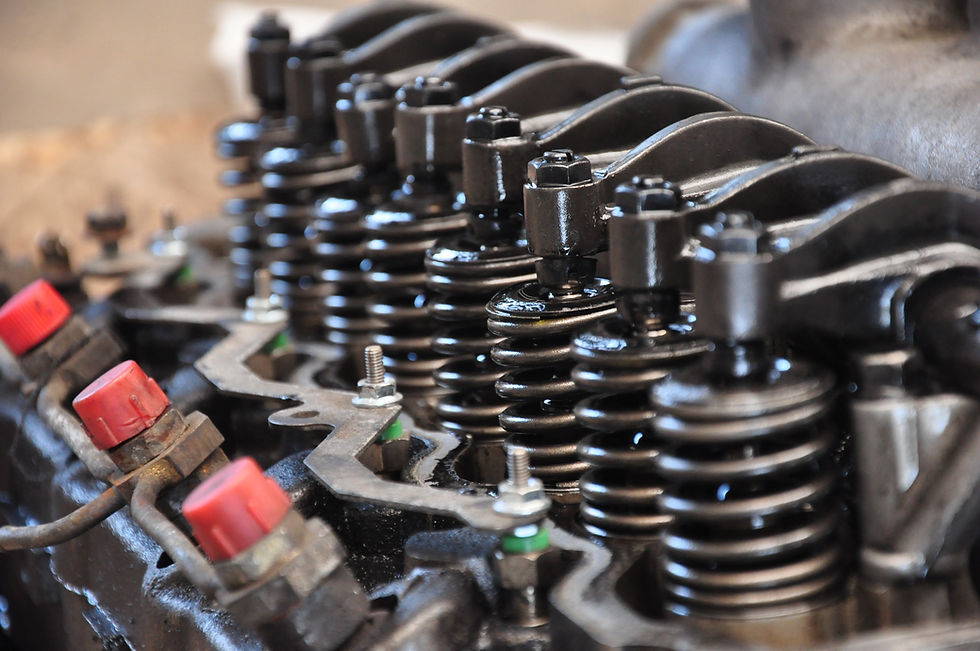NADCAP & Special Processes
- Mary Leigh Enders
- May 5, 2021
- 4 min read
Updated: Nov 15, 2022
History
The aerospace industry has compartmentalized the complex structure of checks and balances through the means of forming the National Aerospace and Defense Contractors Accreditation Program (NADCAP). NADCAP is an industry-managed approach to conformity assessment of 'special processes' that brings together technical experts from prime contractors, suppliers and representatives from government to work together and establish requirements for approval of suppliers using a standardized approach. Before establishing NADCAP, aerospace companies audited their own Suppliers to their own process requirements to verify compliance.
As the processes the Suppliers were providing to their customers were often similar or identical, the customer requirements were comparable. Consequently, these duplicate audits were redundant and simply added to everyone’s workload, without adding value. For the aerospace Prime contractors, conducting their own audits similarly meant duplication of effort, redundant audits, unnecessary administration and, ultimately, higher cost for no added value. In November 1989, a US Government/Industry Equal Partners Conference recommended a consensus solution to the duplication of Supplier process control system audits and in July 1990, the Performance Review Institute (PRI) was incorporated to administer the NADCAP program.
How it Works
The Performance Review Institute wanted an industry-wide approach to solutions regarding special process and aerospace Suppliers. By implementing and complying with NADCAP regulations, all applicable participants within the aerospace industry are able to:
Establish a stringent consensus surrounding standards that satisfy specific requirements;
Replace routine audits of Suppliers with one approved through a consensus decision-making process of members from the user community;
Improve Supplier quality throughout industry through stringent requirements;
Provide more frequent audits for Primes*, fewer audits for Suppliers;
Conduct more in-depth, technically superior critical process audits.
*Primes: Organizations that are lead producers of aerospace related products (Boeing, Rolls Royce, etc.)
As administrators of the NADCAP program, PRI, will schedule an audit and assign an approved auditor who will conduct the audit against an industry-agreed standard using an industry-agreed checklist. This accreditation requires specialized audits against specific NADCAP requirements for individual processes, not the company’s quality system. However, NADCAP process accreditation requires the company’s quality system itself to be certified to AS9100 (or equivalent) before NADCAP auditing can be conducted. PRI will then administer a closeout of any non-conformance reports and, upon completion of any required corrective action, will present the completed audit package to a 'special process' task group made up of members from industry that will review it and vote on its acceptability for approval. Accreditation is granted when all nonconformances are closed.
Note: The Nadcap implementation plan for each company must be uniquely developed.
What is a Special Process
Special processes refer to a set of linked procedures that lead to the creation of products and services whose end results would not otherwise be measured, monitored or verified before being released to the customer. Hence, these products and services require special attention during production to ensure that they are free of defects, also known as destructive testing. A special process pertains to many different types of testing:
Chemical Processing (i.e., Plating, Anodizing, Conversion/Phosphate Coatings, Paint and Dry Film Lubricants, Etch);
Heat Treating (i.e., Stress Relieving, Annealing, Carburizing, Nitriding);
NDT (i.e., Liquid Penetrant, Magnetic Particle, Ultrasonics, X-ray);
Non Conventional Machining (i.e., EDM);
Welding (i.e., Torch/Induction Manual Brazing, Flash Welding, Electron Beam Welding, Fusion Welding, Laser Welding, Resistance Welding).

Since special processes include procedures that alter or change the mechanical, chemical or physical parts of products within the operation or process, they require rigorous, standard-specific practices as well as qualified personnel or employees. Organizations must provide well documented evidence of procedures within the special processes, incorporating both equipment and qualifications of employees conducting the destructive testing. Organizations are required to present the PRI auditor with fact-based evidence that demonstrates their ability to achieve planned or expected results from the special processes. Documentation of success will aid the auditor in understanding the outcome when conducting a review of the products.
Understanding NADCAP & Special Processes
Q1: What will NADCAP accreditation do for me, what added value does it serve?
The Nadcap program offers the opportunity for suppliers to gain tighter controls within their special processes, and provides the forum for a voice in the establishment of audit requirements, networking, and market recognition.
Q2: What type of preparation is required for a NADCAP audit?
PRI/Nadcap recommends using the applicable audit checklists to conduct a thorough self-audit. Correcting Non Conformances identified and serious preparation directly affect cycle time of processing the audit report. Staff Engineers are available at PRI to discuss any questions that suppliers may have regarding audit criteria questions.
Glossary
NADCAP
(National Aerospace and Defense Contractors Accreditation Program) is an industry-managed approach to conformity assessment of 'special processes' that brings together technical experts from prime contractors, suppliers and representatives from government to work together and establish requirements for approval of suppliers using a standardized approach.
PRI
(Performance Review Institute) – NADCAP administrators
Special Process
Special processes are those which cannot be verified after the process without destructive testing. A special process is any production or service process which generates products or services which cannot be measured, monitored, or verified prior to delivery and use.
About the Author
Tim Jennison | Management Specialist

Tim has assisted over 20 clients in complying to ISO 9001, AS9100, and Cybersecurity standards. His experience stretches across several industries, and has proven to be integral when managing multiple projects at once. His four years at MSI has supported our organization’s reputation of quality services and he continues to provide exemplary work.
Reference(s)
ISOUpdate.com. (2019, January 11). What are NADCAP special processes For aerospace? Retrieved April 13, 2021, from https://isoupdate.com/resources/nadcap-special-processes-aerospace/
Nadcap. (2020, December 31). Retrieved April 13, 2021, from https://p-r-i.org/nadcap/


Comments